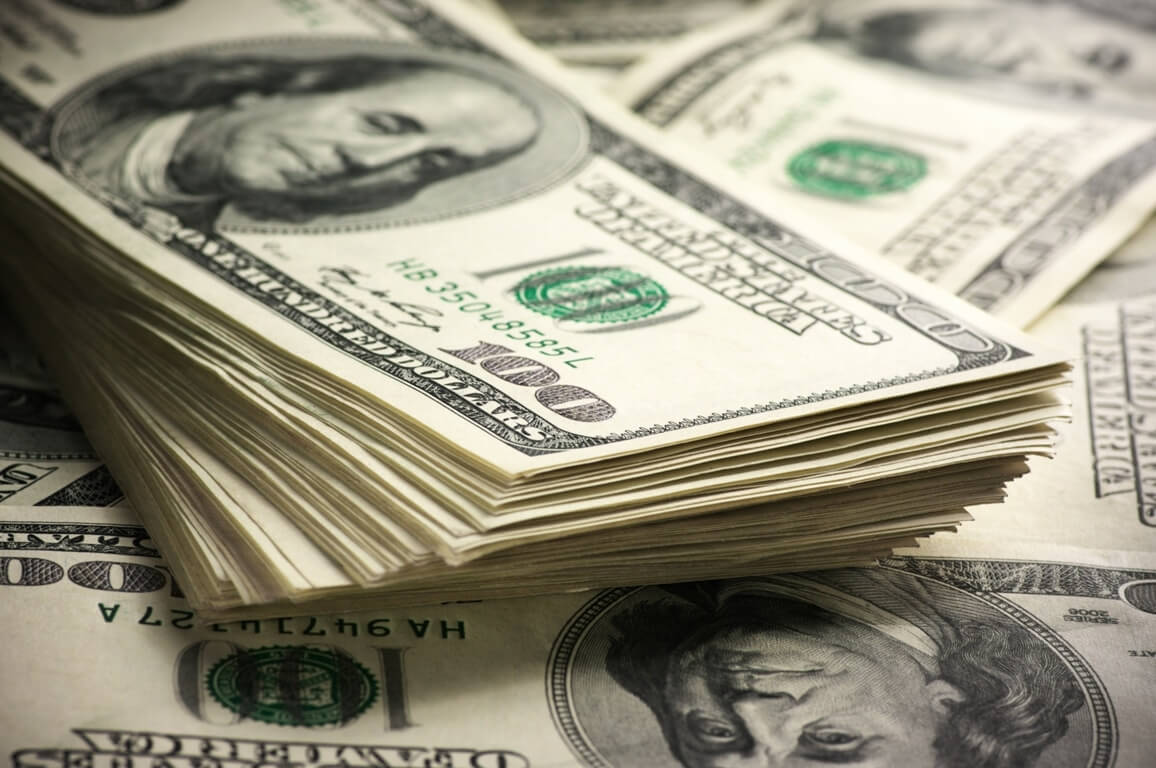
The US Dollar is Weakening Against All of its Major Rivals
The US dollar held near two-week lows at the beginning of the week. Optimism about coronavirus vaccine rollouts and a planned $1.9 trillion stimulus package boosted riskier currencies, stock markets, and commodity prices.
According to Yahoo Finance, the dollar index dropped 0.1%. It decreased close to last week’s low of 90.249. This level has not been seen since January 27. If optimism remains, analysts believe the American currency could weaken further.
Analysts said that market participants underestimate global policymakers’ willingness to let the economy run hot and fuel growth.
USD/JPY drops from its recent highs
Pressure on the dollar is sending USD/JPY lower after it hit 105.62, its highest level in a week. Yields on US Treasuries hit a new one-year high in pre-opening trading. 10-year yields hit 1.25%, currently around 1.23%. Higher yields on government bonds generally reflect risk appetite and tend to play against the Japanese currency, considered a haven asset against the dollar. The relationship has changed these days, with the greenback falling against most of its main rivals in risk scenarios.
Japan released the December tertiary industry index, which stood at -0.4% versus -0.6% expected. The United States has a light macroeconomic calendar. It will release the NY Empire State manufacturing index for the February forecast and the ICT flows for December.
Will the value of the dollar decrease more?
Currently, the pair is trading just above the 23.6% retracement of its last daily advance in the 105.30 price zone. In the short term, the risk of a steeper decline appears limited as, on the 4-hour chart, USD/JPY continues to develop above bullish moving averages. Technical indicators retreated from overbought readings, but they lack bearish strength, consolidating well at positive levels. The main support is 104.95, the 38.2% retracement of the aforementioned daily advance.
Japan is one of the largest holders of US dollars
Foreign governments hold the dollar in their currency reserves, which is another factor affecting its value. Since these governments export more than they import and receive dollars in payment, they end up stockpiling the currency. Holding onto dollars is in many of these countries’ best interests. It keeps their currency values lower. Japan and China are some of the most significant holders of US dollars.
The weakening of the dollar causes a drop in the value of other countries’ reserves. They don’t want to hold dollars in reserve, and they diversify into other currencies, such as yen or euro. As a result, the dollar’s demand reduces, and it puts further downward pressure on its value.
-
Support
-
Platform
-
Spread
-
Trading Instrument




